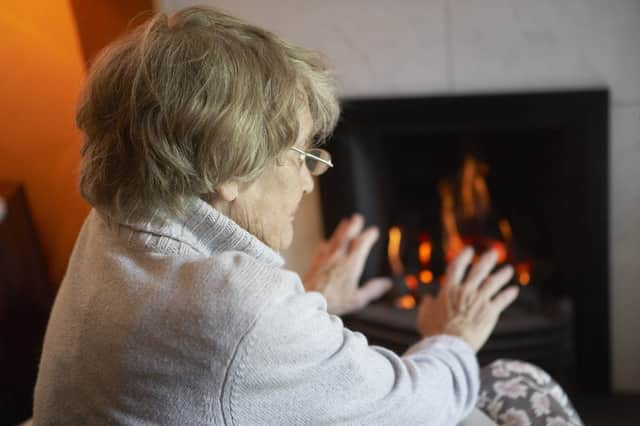Here’s all you need to know about the winter fuel payment - and if you’re eligible


Energy bills are set to rise due to the soaring price of wholesale gas in 2021.
Suppliers have been hit with another sharp increase in gas prices in August, with the cost up 250% since the start of the year.
Advertisement
Hide AdAdvertisement
Hide AdThe additional financial strain has been shouldered by providers in the short term but consumers should be braced for a rise in their energy bills.
The energy price cap, introduced by the government to protect households from significant market fluctuations, is set to rise from 1 October 2021.
It comes at a time when the £20 weekly universal credit uplift is to be withdrawn - a decision which could impact 1.5 million workers and labelled "disastrous" by Citizens Advice.
So if you're struggling to meet energy bills, help could be at hand from the government and providers this winter - here's all you need to know about the winter fuel payment.
What is the winter fuel payment?
Advertisement
Hide AdAdvertisement
Hide AdThe winter fuel payment is a one off grant to help pay for heating during the winter.
It is an annual payment provided by the government if you were born on or before 26 September 1955.
How much is the winter fuel allowance?
The annual one off winter fuel payment is typically between £100 and £300.
How much each household gets depends on the circumstances of the people living there during a week in September, known as 'qualifying week'.
Advertisement
Hide AdAdvertisement
Hide AdIn 2021, the 'qualifying week' for winter 2021 to 2022 is 20 to 26 September 2021 and checks your status. Ie. if you were in prison for the whole week then you would not qualify.
The government also states that any money you receive is tax free and will not affect other benefits.
Who gets winter fuel payments - from what age can you claim?
In 2021, you qualify for a winter fuel payment if you were born on or before 26 September 1955 and you lived in the UK for at least one day during 'qualifying week'.
If you did not live in the UK during that particular week in September, you might still get the payment if you live in Switzerland or a European Economic Area (EEA) country and have lived, worked or have family in the UK.
How can I apply for the winter fuel allowance?
Advertisement
Hide AdAdvertisement
Hide AdIf you are eligible for the winter fuel payment then you'll typically receive the grant and not need to claim, however, applications need to be made if the following applies:
- you do not get benefits or a state pension
- you only get housing benefit, council tax reduction, child benefit or universal credit
- you get benefits or a state pension but live in Switzerland or an EEA country
If you have got a winter fuel payment before, you only need to claim if since your last payment you have either deferred your state pension or moved to Switzerland or an EEA country.
Claims can be made over the phone by calling 0800 731 0160 from inside the UK or +44 (0)191 218 7777 from outside the UK.
Claimants should have their national insurance number and bank or building society details to hand, as well as the date you married or entered a civil partnership (if appropriate).
Advertisement
Hide AdAdvertisement
Hide AdIf you live in Switzerland or an EEA country then BIC and IBAN numbers are required.
Claims can also be made through the post.
Claimants from the UK can send application forms to Winter Fuel Payment Centre, Mail Handling Site A, Wolverhampton, WV98 1LR.
Claimants from an EEA country or Switzerland can send applications to Winter Fuel Payment Centre, Mail Handling Site A, Wolverhampton, WV98 1ZU, UK.
When is the winter fuel payment paid?
Typically, if you've made a claim and been accepted for a winter fuel payment, you should receive the money in November or December.
Advertisement
Hide AdAdvertisement
Hide AdAll claimants will receive a letter informing them how much they will get and an estimated payment date.
If the money is not paid into your account by 14 January 2022, contact the Winter Fuel Payment Centre on the telephone number provided above.
All benefits, pensions and allowances are paid into an account, such as a bank account.